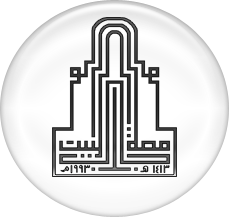| DC Field | Value | Language |
|---|
| dc.contributor.author | شادي الأحمد | - |
| dc.contributor.author | زكريا شطناوي | - |
| dc.contributor.author | عدنان ربابعة | - |
| dc.date.accessioned | 2022-03-16T11:20:07Z | - |
| dc.date.available | 2022-03-16T11:20:07Z | - |
| dc.date.issued | 2021-05-04 | - |
| dc.identifier.uri | http://hdl.handle.net/123456789/2201 | - |
| dc.description.abstract | ملخص
هدفت الدراسة إلى بيان آراء الفقهاء في دفع القيمة بدل العين في الزكاة، حيث تمثلت مشكلة الدراسة في بيان مدى إمكانية إخراج قيمة العين الواجب إخراجها في زكاة المال بدلاً عنها، وما الآثار الاقتصادية المترتبة على ذلك، وعرضت الدراسة الزكاة كأداة من أدوات السياسة الاقتصادية؛ نظرا لما يترتب عليها من حجب أو ضخ كمية هائلة من النقود في السوق، ثم بينت الدراسة الآثار الاقتصادية المترتبة على التحول من العين إلى القيمة في دفع الزكاة لمستحقيها، وعرضت زكاة الفطر أنموذجاً، وخلصت هذه الدراسة إلى: أن المصلحة العامة تقتضي القول بمرونة إخراج الزكاة بين النقدية والعينية، ففي الأمر سعة تقررها السياسة الشرعية بناء على الوضع الاقتصادي السائد؛ نظرا لتطور الحاجات وتعددها ولما تحققه الوحدة النقدية من منفعة في يد المستحق، ولما تعود به من نفع على المكلف. وأوصت الدراسة أن تقوم الدولة بمسؤوليتها تجاه الزكاة جمعا وإنفاقا؛ لأن الآثار الاقتصادية لا يمكن أن تتحقق إلا من خلال ذلك.
الكلمات المفتاحية: الزكاة، الآثار الاقتصادية، النقدية، الاقتصاد الإسلامي.
The economic effects of paying the cash value instead of the goods in the Zakat: Zakat Al-Fiter as a model
Abstract
The study aimed to clarify the views of the jurists in paying the value instead of the tangible goods in zakat, where the problem of the study was to show the possibility of paying the value instead of the tangible goods that should be paid in zakat, and what are the economic implications of that and presented zakat as a tool of Economic policy due to its influence withholding or pumping a huge amount of money into the market, then the study showed the economic effects of the shift to paying the value instead of thetangible goods in zakat to the beneficiaries, and presented Zakat Al-Fitr as a model, and this study concluded that the public interest requires saying of flexibility in paying zakat both cash or tangible goods, Islamic economic policy gives flexible space depending on the current economic situation due to development and mutability of needs, and the benefits of cash which can be achieved for both the beneficiaries and the zakat payer.
The study recommended that the state fulfill its responsibility towards zakat, both in Collection and spending, because the economic effects can’t be achieved only through that.
Key words: Zakat, economic impacts, monetary, Islamic economics. | en_US |
| dc.subject | الكلمات المفتاحية: الزكاة، الآثار الاقتصادية، النقدية، الاقتصاد الإسلامي. | en_US |
| dc.title | الآثار الاقتصادية لدفع القيمة بدل العين في الزكاة "زكاة الفطر نموذجاً" | en_US |
| dc.type | Other | en_US |
| Appears in Collections: | المجلد 18، عدد 1 لسنة 2022
|

